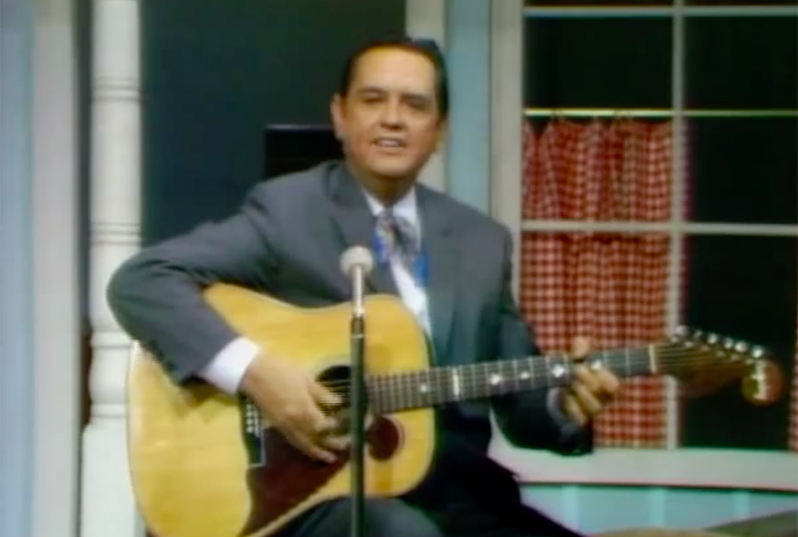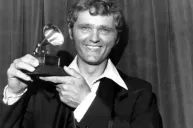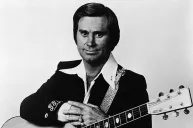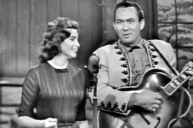Merle Robert Travis was born on Nov. 29, 1917. Though Travis passed away from a heart attack in 1983, his country music songs and dynamic style of guitar playing, known as "Travis Picking," live on forever. Even Merle Haggard referred to Travis as "the first and foremost Merle."
Videos by Wide Open Country
Merle Travis' impressive style of fingerpicking, in which the thumb plucks the chord and bass notes while the index finger picks the melody, was passed down from an African American guitarist from Kentucky named Arnold Shultz. Shultz shared his method with music writer and guitarist Kennedy Jones, who influenced fellow Kentuckian Merle Travis. His other early musical predecessors using this technique were Ike Everly, the father of The Everly Brothers and Mose Rager.
Travis grew up in the coal mining community of Rosewood, Ky. in Muhlenberg County, which John Prine famously sang about in his song "Paradise." Though he didn't work in the mines, the prevalence of coal mining in the area and the impact it had on the county's citizens would inspire his most iconic song that would forever associate Travis with songs of the coal mines.
His early success came from recording with Grandpa Jones for King Records. Travis, Grandpa Jones and the Delmore Brothers even formed a gospel group called The Brown's Ferry Four recording together from between 1946 and 1952.
Sixteen Tons
Beneath the deceptively upbeat, snappy chug-a-chug rhythm, "Sixteen Tons" tells the story of countless workers who risked their lives down in the mines only to remain in debt to the very coal companies that employed them. Or, as Travis sang, "You load sixteen tons and what do you get? Another day older and deeper in debt. Saint Peter don't you call me 'cause I can't go. I owe my soul to the company store."
Tennessee Ernie Ford took "Sixteen Tons" to No. 1 on the Billboard chart in 1955. In 2015, the song was included in the Library of Congress's National Recording Registry.
Like fellow Kentucky greats Bill Monroe and Loretta Lynn, Travis brought his Bluegrass State upbringing with him from the holler to the stage. Travis released Folk Songs of the Hills in 1946. The album included more songs about the coal mines, "Nine Pound Hammer" and "Dark as a Dungeon" that discuss the arduous hours and hazards of mining.
In the video below, Travis introduces his coal miner's hymn, "Dark as a Dungeon" and sums up the toll the career takes on those who pick up that "nine pound hammer."
"Once a miner, always a miner," Travis says. "If you work in the mines, the coal soot gets in your blood."
The 1976 documentary Harlan County, U.S.A., which follows miners in Harlan County, Ky. in their effort to ensure better living and working conditions, features Travis' "Dark as a Dungeon."
Walkin' the Strings
Travis' blend of country, blues, ragtime and western swing made him a nationwide success and a natural collaborator. He developed a lifelong friendship with fellow guitar slinger Joe Maphis. Maphis was influential in the development of the "Bakersfield sound," a country genre developed in the honky tonk bars of Bakersfield, California that rejected the ultra-produced sound of Nashville. He even gained major exposure by performing in the 1953 film, From Here to Eternity. His hit songs with Capitol Records in Los Angeles "Cincinnati Lou," "No Vacancy," "Divorce Me C.O.D.", "Sweet Temptation", "So Round, So Firm, So Fully Packed", and "Three Times Seven" made him popular among listeners.
In the clip below, Travis and Maphis teamed up to record "Cannonball Rag," trading licks on each other's guitars in a mind-blowing picking party that really showcase his crazy skills as a guitar player.
Travis is revered among the best players in the industry. The legendary Chet Atkins was heavily influenced by Travis' playing. The deo even recorded His 1974 album of duets, The Atkins - Travis Traveling Show, which won a Grammy award. Guitar great Doc Watson so admired Travis that he named his son, Merle Watson, after him. Travis was inducted into the Nashville Songwriters Hall of Fame and the Country Music Hall of Fame.
As long as there's pickin' in the air, Travis will always be remembered. Make time to listen to some Merle Travis today. His son Thom Bresh continues to play music using his father's signature style. It is even believed that Travis' design of the solid body electric guitar that was built for him by Paul Bigsby is what inspired Leo Fender's Broadcaster model in 1950. The Travis-Bigsby guitar now resides in the Music Hall of Fame Museum where you can look upon the instrument that gave us some of the best country instrumental music in history.




